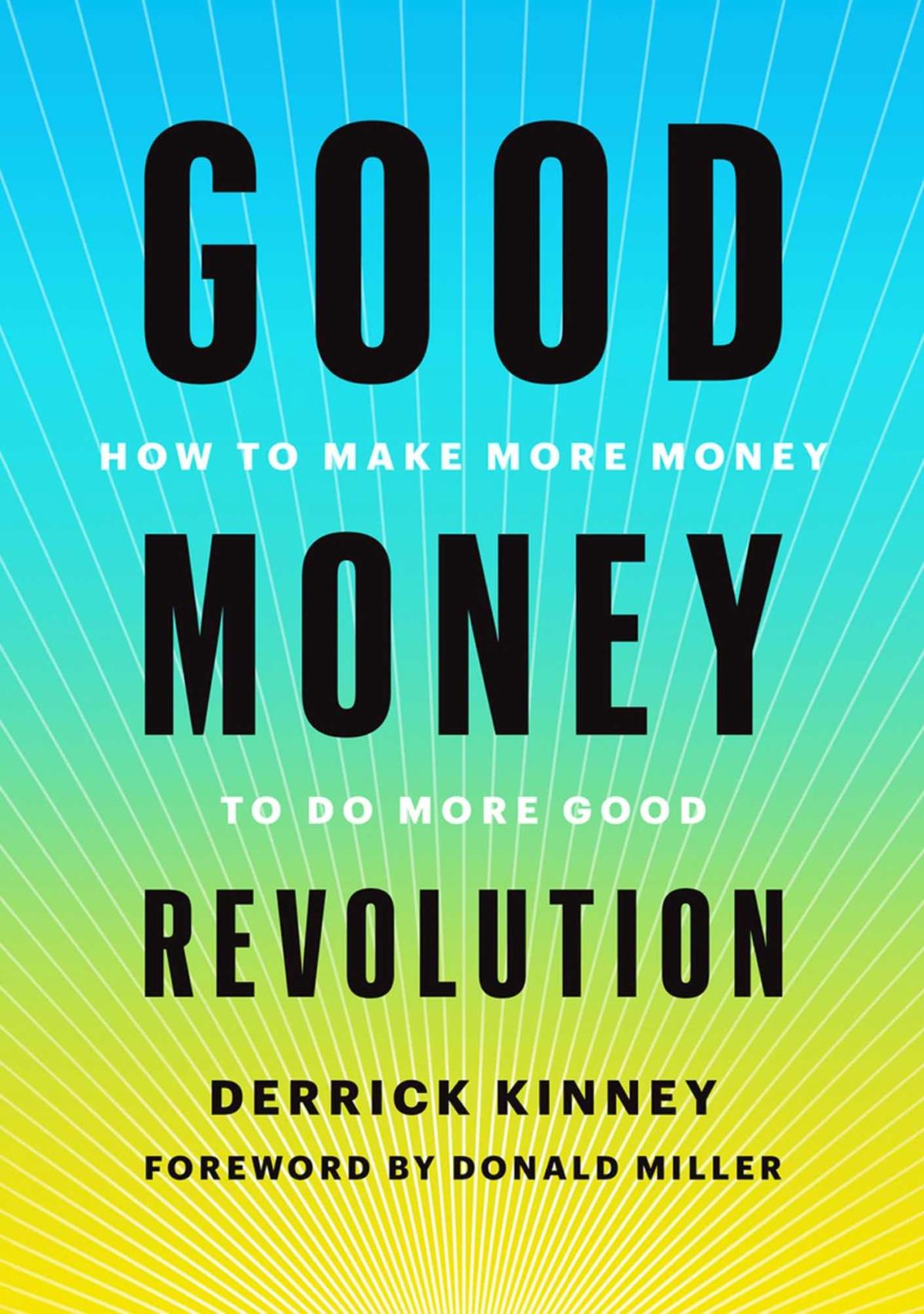My hat goes off to the men and women who wake up every morning and commute to a job they can barely tolerate. They return home at 6:00 p.m. with the emotional baggage of leaving a place they didn’t want to go to in the first place. They see their life as a revolving door. Money comes in and goes right back out—and usually there is more month left than there is money.
The result is anguish and anger toward money. Family relationships sometimes sour because everyone is constantly worried about where the next dollar will come from. With that mentality, you’re just thinking about how to make ends meet, not how you can change the world. When a person, especially a child, hears this, they begin to think there’s a ceiling to their success. Stories like this really pain me.
Thinking back to my own childhood, I grew up in a classic middle-class family. My dad would leave early in the morning and return home about 5:30 p.m. My mom worked part-time in retail and often had a snack waiting for my sister and me when we walked in the door from school. We lived in a modest house, and I was proud of it.
Growing up, however, I remember making judgments about people. If I saw a fellow student come to school with a new pair of the hottest shoes, I thought to myself, Wow, they must have money; my family could never afford that. I remember the first time I went to a friend’s house that had more than two bathrooms. I thought to myself, Wow, these people must be rich!
These kinds of observations lead to perceptions we form as kids. Reflecting back, these memories are as real to me today as they were then. When I was just out of college, I remember driving with Kara through the neighborhood where we live today, thinking, Wow, how could someone possibly afford these houses, and what job do they have to be able to live here?
I wasn’t satisfied to drive away and always wonder. I wanted to live in that neighborhood one day. I wasn’t sure how, but I believed I could figure it out.
Ramit Sethi, who has taught thousands to manage their personal finances, believes the toxicity of money begins with one’s self-identity. “When I was in college,” he explains, “I used to joke that I was just a skinny Indian guy. And I wish that I could go back in time and shake my old self and tell him to stop saying that. Because ... it became a self-fulfilling prophecy.... I had created my own mental cage. And many of us do the same with money. We will literally point-blank say, ‘Well, I’m just not good with money.’ Well, guess what? Every time you say that, it’s becoming more true.”
Ramit also stresses that toxic ideas about money are holding people back. “We grow up believing that ... money causes stress,” he explains. “‘More money, more problems.’ We believe that ‘I don’t deserve to make more money.’ And we also normalize some of our own financial situations. ‘Yeah, I might have ten thousand dollars of credit card debt, but at least I don’t have twenty, like Michelle. I’m fine. I’m doing okay.’”
A healthy relationship with money often begins with a proper perspective of oneself. My friend Donald Miller wrote a book called Scary Close. In it, he says so many of us walk around thinking we are a nuisance to other people, that we’re inconveniencing them. But what if that thinking were flipped and instead we thought, You know what? I am valuable. People like me. Don writes, “It’s a beautiful moment when somebody wakes up to this reality, when they realize God created them so other people could enjoy them, not just endure them.”
Once you are comfortable with yourself and recognize that people value you, that leads to making more confident personal and financial decisions. You do help make people’s lives better. Adopting this positive mindset translates into confidence and self-esteem. With that kind of attitude, your earnings are bound to skyrocket.

But maybe you’ve made one or more money decisions that cost you. It caused you to feel embarrassed and angry, and now you have a “once bitten, twice shy” response. This is where your redemption story gets written. Accept that it happened. What did you learn from it, as painful as it was? What would you do differently? The cold, hard truth is this: You have to get back up, brace yourself, and move forward—with your life and your money. If not, you will remain stuck. The most successful, well-admired people in the world will often tell you they’ve made many more mistakes than they’ve had successes. But they keep learning from their missteps while continuing to put one foot in front of the other. That’s what I’m asking you to do right now.
I love owning a home. I hate home repairs. I learned a long time ago that the small things that need repair should really be repaired. If ignored, what would have been little fixes often turn into big problems. Our lives can look like that—hiding all the little holdbacks that add up to one big one. Maybe it was a teacher in school who said, “You are not smart.” Maybe it was a parent at the dinner table who said, “Our family is just not good with money.” Or your supervisor at your job stated, “Listen, you’ll never get promoted. You don’t have what it takes.” These recordings play over and over in our heads, and we don’t even realize how costly they are to our success until we get angry when we see other people living the life we want.
Popular speaker and author (and table tennis expert) Jon Acuff, wrote a book called Soundtracks. During an interview he told me, “Negative thoughts find you; positive thoughts we have to look for.”
Retraining your brain to have a positive mindset about life and money takes work. Are you willing to do it? I believe in you. If I can do it, you can too. Like millions of other Americans, through hard work and determination, I created wealth for my family and a lifestyle that is significantly improved over what I had as a child. I know you want the same for your children.
The circumstances you were born into were out of your control. Your circumstances have influenced your view of money and may have limited your potential and success. I hope you realize that regardless of where you are right now as you read this, your background, past failures, or whether you’re twenty, forty, sixty, or eighty years old, you have the ability to recraft any beliefs about money that you’ve lived with up until today.
Now is the time. Flip your money script. Don’t let it end with you.
(To be continued...)

This excerpt is taken from “Good Money Revolution: How to Make More Money to Do More Good” by Derrick Kinney.
To read other articles of this book, click here.
To buy this book, click here.
The Epoch Times copyright © 2023. The views and opinions expressed are those of the authors. They are meant for general informational purposes only and should not be construed or interpreted as a recommendation or solicitation. The Epoch Times does not provide investment, tax, legal, financial planning, estate planning, or any other personal finance advice. The Epoch Times holds no liability for the accuracy or timeliness of the information provided.






